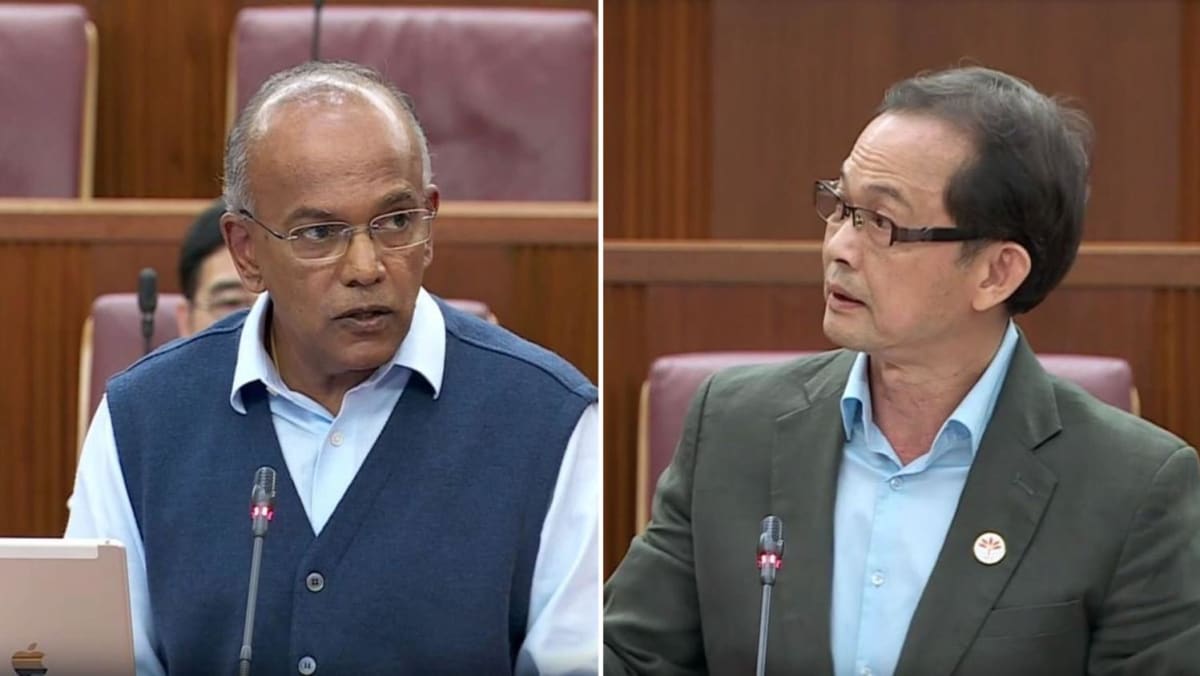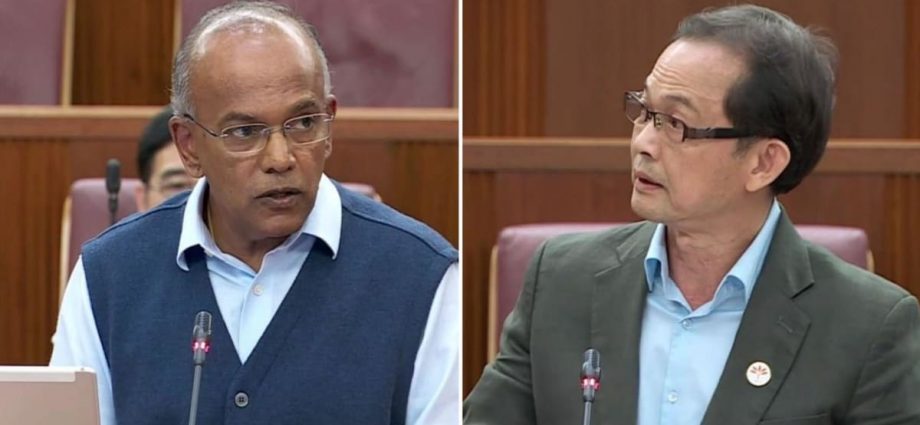
Throughout his statement, Mr Shanmugam asked Mr Leong a series of pointed questions on whether Mr Leong agreed with certain points the minister made on Monday.
When Mr Leong tried to elaborate while responding to the questions, Speaker Tan Chuan-Jin reminded him to answer the questions directly and to make his statements at the end of the minister’s speech.
At one point, Mr Leong objected to these questions and said: “I am not going to answer the minister like answering in court. This is a legislative chamber, this is not a legal chamber. I have my way of answering.”
Mr Leong and Mr Shanmugam also debated other related issues, including whether the minister was trying to “muddy the waters” by raising the Parti Liyani case as an example where a person was named while under investigation for lying under oath.
Mr Leong wrote in his Facebook post that “bringing up the Parti Liyani case is just another attempt to muddy the waters. So let us concentrate on the difference between the LHY (Lee Hsien Yang) and KOM (Keppel Offshore & Marine) cases”.
Mr Shanmugam said: “The essence of his statement is that I used an example, which is irrelevant, and that it was used to confuse Parliament.”
When asked by Mr Shanmugam, Mr Leong said that he did not accept that the Parti Liyani case was relevant to the discussion. He also said that the issue was about the Lee Hsien Yang case and the Keppel Offshore & Marine case, and there was no need to “bring in a new case”.
“When you bring in a new case, in a way, you are clouding the thinking of people. I didn’t say it’s irrelevant, I didn’t say you are confusing Parliament. Minister, don’t put words into my mouth,” he said.
To which, Mr Shanmugam said: “Sir, may I ask? What is the meaning of muddying the waters?”
“Speaker, now minister is testing whether I’m from a lousy school or not,” Mr Leong replied.
Mr Tan then explained that the debate was meant to clarify what Mr Leong meant by “muddying the waters” in his Facebook post. He also reiterated that the parliamentary debate should be done within the House and not carried on in a “one-dimensional way” outside.
“The question is you made a statement out in a Facebook post about ‘muddying waters’ and I think minister is asking what exactly do you mean. And there is no allegation about what school you come from, I’m sure you’re from a very good school,” said Mr Tan.
Mr Leong then explained what he meant by “muddying the waters”, and later added that the Parti Liyani case will cloud the judgment of other people, but insisted he was not “casting aspersions” on the minister.
He also asked Mr Shanmugam to elaborate again on why the phrase “muddying the waters” was an issue.
Mr Shanmugam repeated his reasons for raising the Parti Liyani case, then said: “If (the) member thought that that was not relevant, I am happy for a debate. I am not saying everyone has got to agree with what I said … Don’t be a coward, keep quiet here, say ‘it’s an attempt to muddy the waters’. That’s casting aspersions on me … that is not acceptable.”
Mr Shanmugam asked Mr Leong to withdraw his allegation that the Parti Liyani case was raised to “muddy the waters”, but Mr Leong said that he would not withdraw that statement.

